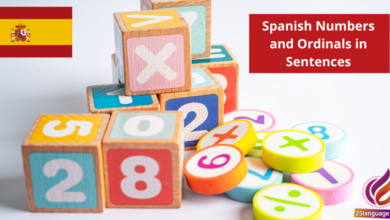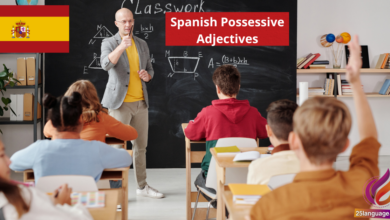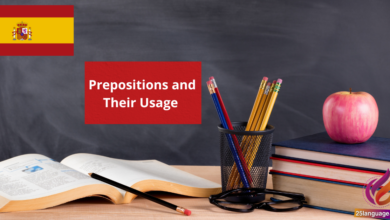Spanish Modal Verbs

Unlocking the world of Spanish begins with understanding its modal verbs, and today we’ll dive into three powerful ones: “poder,” “querer,” and “deber.” These verbs allow you to express ability, desire, and obligation, making your conversations more dynamic and meaningful. Imagine confidently saying what you can do, what you want, and what you should do. Let’s explore these essential verbs and elevate your Spanish skills to new heights!
Exploring the Power of Spanish Modal Verbs
In Spanish, modal verbs serve to express possibility, necessity, ability, or permission among other functions.The primary modal verbs in Spanish are poder (to be able to), deber (to should/must), and querer (to want). These verbs are essential in forming sentences that convey nuances in intention and obligation. Such as, you might say “Puedo ir al cine”, which translates to “I can go to the movies”. Hear,puedo indicates ability. Another instance is “Debo estudiar para el examen”, meaning “I must study for the exam”, where debo indicates necessity. expressing desire can be done with “Quiero comer pizza” translating to “I want to eat pizza”.
When using these modal verbs,the conjugation may change depending on the subject of the sentence. It’s vital to note the following key points about their forms:
- Poder: puedo (I can), puedes (you can), puede (he/she can), podemos (we can), pueden (they can)
- Deber: debo (I must), debes (you must), debe (he/she must), debemos (we must), deben (they must)
- Querer: quiero (I want), quieres (you want), quiere (he/she wants), queremos (we want), quieren (they want)
| Spanish Example | Rule | English Translation |
|---|---|---|
| Puedo bailar salsa | Ability | I can dance salsa |
| Debo ir al médico | Necessity | I must go to the doctor |
| Quiero aprender español | Desire | I want to learn Spanish |
Unlocking Ability, Desire, and Duty in Spanish
in Spanish, expressing ability, desire, and duty involves understanding modal verbs and their usage in both present and past contexts. The primary modal verbs relate to ability (poder), desire (querer), and duty or obligation (deber). Here’s a rapid overview of how these verbs are conjugated in the present tense:
- Poder (to be able to): Me siento capaz de mucho.
- Querer (to want): Siempre quiero aprender más.
- Deber (to should/must): Debo practicar todos los días.
For example,if you want to convey that you can play the guitar,you say “Puedo tocar la guitarra,” which translates to “I can play the guitar.” If you express a desire to travel, you might say “quiero viajar a España,” meaning “I want to travel to Spain.” Lastly, indicating a duty, such as needing to study, can be articulated as “Debo estudiar para el examen,” which translates to “I must study for the exam.” Understanding the context of these verbs enhances your ability to communicate effectively.
| Spanish Example | English Translation | Grammar Rule |
|---|---|---|
| Puedo correr rápido. | I can run fast. | Present tense of poder (ability) |
| Quiero comer pizza. | I want to eat pizza. | Present tense of querer (desire) |
| Debo ir al médico. | I must go to the doctor. | Present tense of deber (duty) |
mastering Poder, Querer, and Deber for Everyday Conversations
In Spanish, the verbs poder (to be able to), querer (to want), and deber (to have to) are essential for everyday conversations as they express ability, desire, and obligation. Each verb is commonly used in various contexts and conjugated according to the subject. Here are some key points to remember regarding their usage:
- Poder: Used to express ability or possibility.
- Querer: Used to express a desire or want.
- Deber: Used to indicate obligation or necessity.
Such as:
- Poder: “¿Puedes ayudarme?” – “Can you help me?”
- Querer: “Quiero ir al cine.” – “I want to go to the movies.”
- Deber: “Debo estudiar para el examen.” - “I have to study for the exam.”
| Spanish Example | Grammar Rule | English Translation |
|---|---|---|
| Yo puedo nadar. | Present tense of poder for ability | I can swim. |
| Tú quieres comer. | Present tense of querer for desire | You want to eat. |
| Ellos deben llegar temprano. | Present tense of deber for obligation | They have to arrive early. |
Practical Applications of Spanish modal verbs in Real Life
Spanish modal verbs, such as poder (to be able to), deber (should/must), and querer (to want), play a crucial role in everyday conversations, allowing speakers to express ability, obligation, and desire. Understanding how to use these verbs in different contexts is essential for effective communication. For instance, when expressing capability, one can say, “Yo puedo hablar español.” (I can speak Spanish.) Here, puedo indicates the ability to perform the action. Similarly, when discussing obligations, you might say, “Tú debes estudiar para el examen.” (You must study for the exam.),where debes signifies something that is required. Lastly, to convey desire, you could say, “Ella quiere ir al cine.” (She wants to go to the movies.), with quiere expressing a wish or intent.
- Ability: poder
- Example: Nosotros podemos ayudar. (We can help.)
- Obligation: deber
- Example: Ellos deben llegar a tiempo. (They must arrive on time.)
- desire: querer
- Example: Yo quiero comer pizza. (I want to eat pizza.)
| Spanish Example | English Translation | Rule |
|---|---|---|
| Yo puedo nadar. | I can swim. | Ability expressed via poder |
| Tú debes hacer la tarea. | You should do the homework. | Obligation expressed via deber |
| Ella quiere aprender más. | She wants to learn more. | Desire expressed via querer |
To Conclude
¡Excelente trabajo en esta lección sobre los verbos modales en español: poder, querer y deber! Hoy hemos explorado cómo estos verbos son esenciales para expresar posibilidades, deseos y obligaciones en la comunicación diaria. Recordemos que poder se utiliza para indicar capacidad o posibilidad, querer para manifestar deseos, y deber para hablar de responsabilidades y obligaciones.
Es fundamental que practiquen estas estructuras en sus conversaciones y escritos. No duden en utilizarlas en contextos reales; hablar con hablantes nativos, escribir diálogos o incluso crear sus propias oraciones puede ser muy beneficioso. Cuanto más practiquen, más confianza tendrán en su uso.
Recuerden, aprender un nuevo idioma es un viaje lleno de descubrimientos. Cada paso que den es un avance hacia la fluidez. Así que ¡sigan adelante! Integren estos verbos en su vocabulario y no tengan miedo de experimentar con ellos. ¡Ustedes pueden hacerlo! ¡Hasta la próxima clase!





























